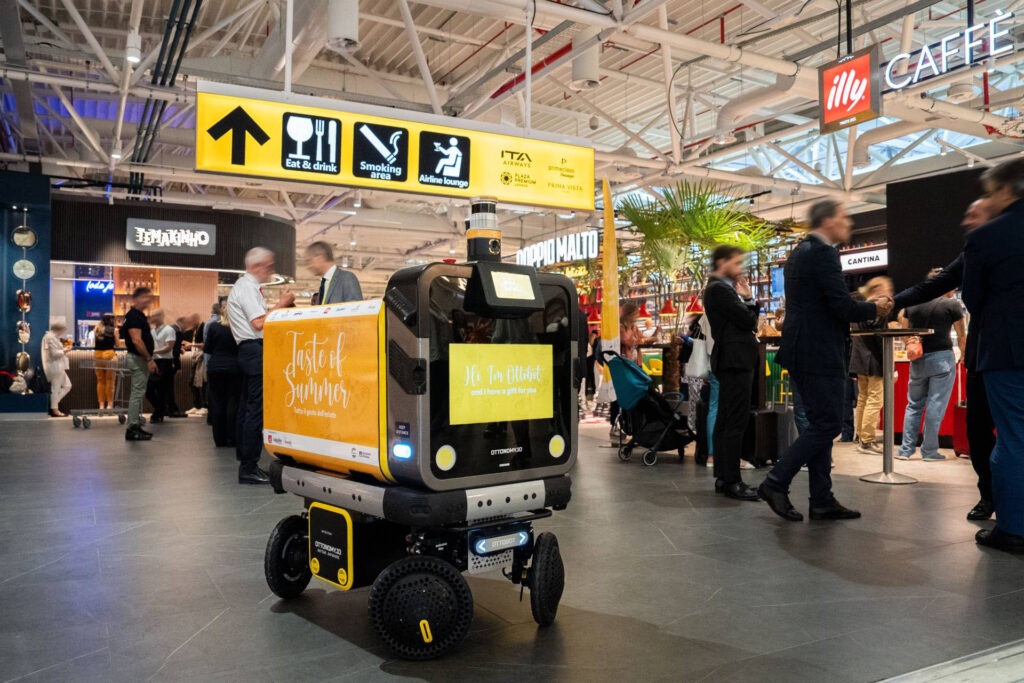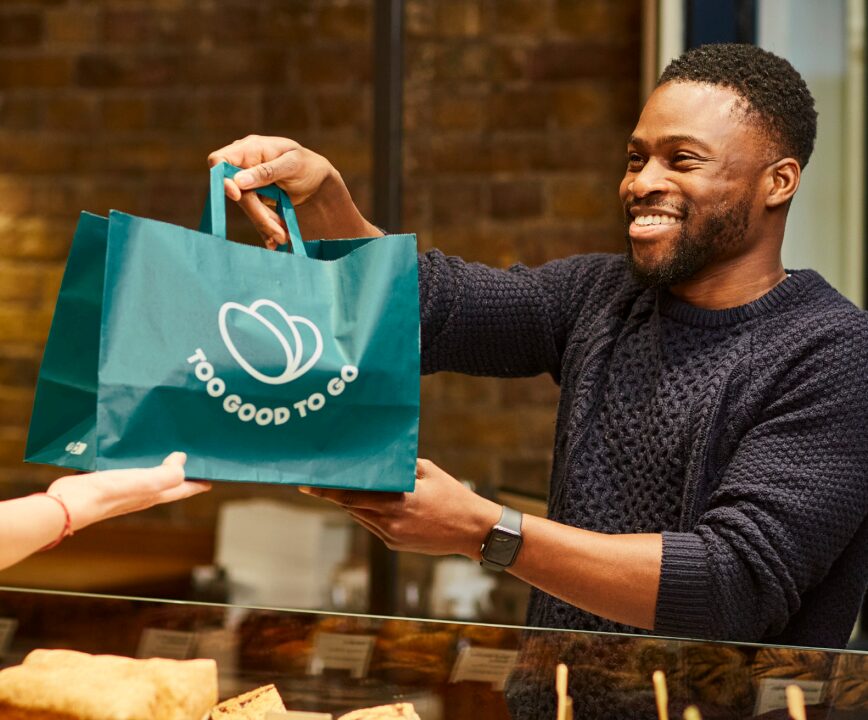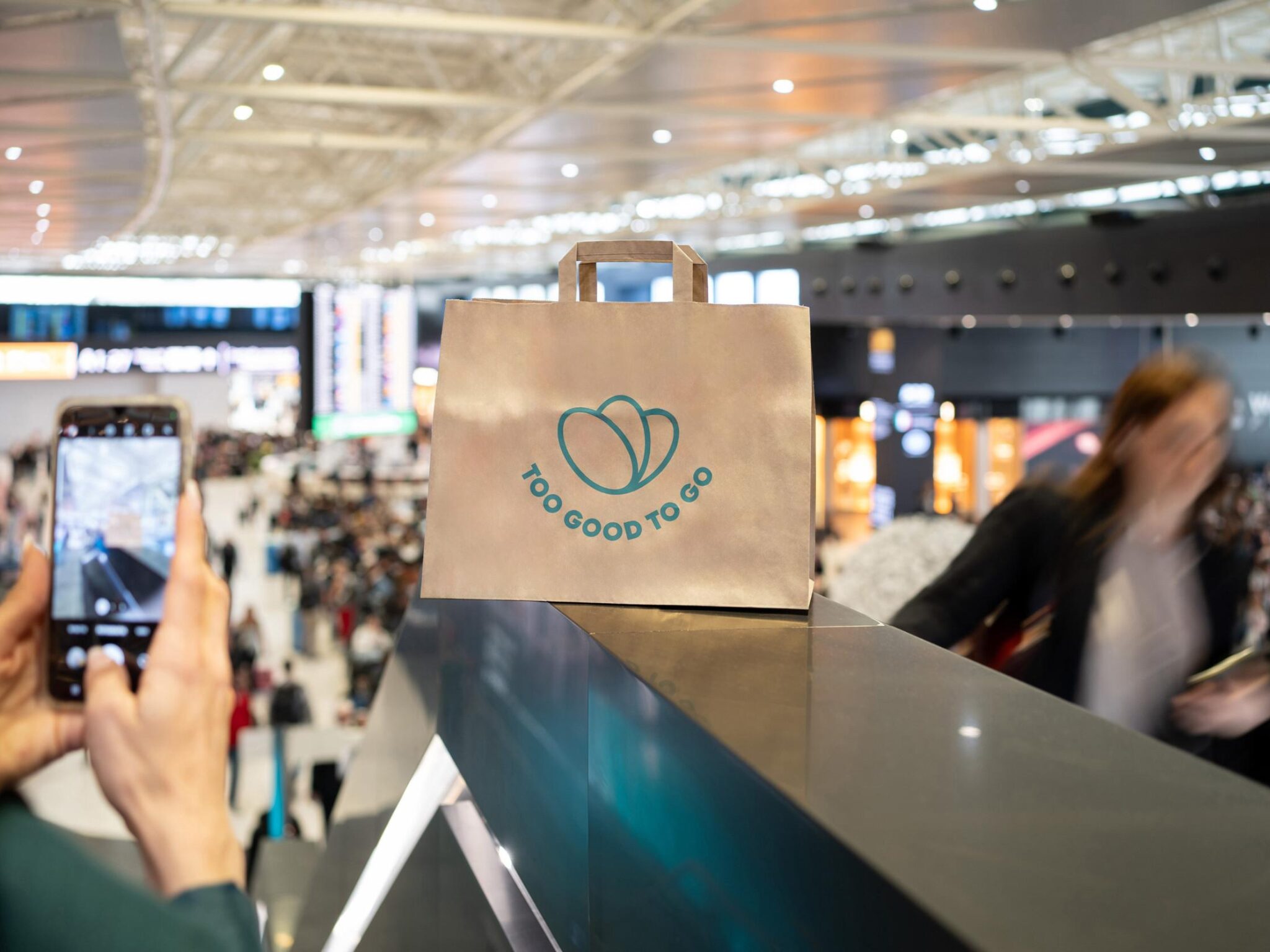4 Mins Read
Aeroporti di Roma has announced a collaboration with Danish surplus food platform Too Good To Go, which will be rolled out at both airports in the Italian capital.
Passengers travelling from Rome’s Fiumicino or Ciampino airports will now be able to buy surplus food that is otherwise destined to be wasted at one of 32 food outlets.
This is thanks to a partnership between Aeroporti di Roma (ADR) – the operator of both airports in Italy’s capital – and food waste platform Too Good To Go. The latter is the world’s largest surplus food service and, last year alone, it saved over 121 million meals from going to waste (a 46% increase from 2022). That meant it saved 100 billion litres of water, and prevented 28,554 tonnes of CO2e from entering the atmosphere. As the company puts it: “That’s the equivalent of over 57,000 passengers flown around the world.”
It’s perhaps fitting, then, that it has now inked a deal that will allow passengers flying from Rome to help save food too. “We are committed every day to making the prevention of food waste a good habit for everyone, everywhere. So we are very pleased to make it possible finally, for everyone setting off from the airports in Rome, to save food that is still good to eat,” said Mirco Cerisola, Too Good To Go’s country director for Italy.
Addressing food waste to meet sustainability goals

The partnership will see Too Good To Go’s service be available at food venues including Autogrill, Chef Express, Lagardère Travel Retail Italia, MyChef and Venchi. ADR – whose airports served over 44 million passengers last year – says the idea is to raise awareness among both passengers and people working in the aviation industry about the importance of reducing food waste, and educate them on the surplus food recovery project.
The operator has set out an aim to rescue 12,000 meals by the end of the year, which in turn will help save over 32 tonnes of CO2 emissions, nine million litres of water and 33,000 sq m of land. This would represent a big step in the right direction for the Fiumicino Airport, which is the country’s busiest and – according to the 2024 Airport Tracker – Europe’s ninth most-polluting airport.
“The strong spirit of cooperation that has always distinguished our relationships with our commercial partners has allowed us to reach this significant milestone,” said ADR’s chief commercial officer, Marilena Blasi.“This is a further sign of our attention and care with regard to passengers and to the airport community that sees the airport as its home and will now enjoy an additional opportunity to help protect the environment by preventing food waste and actively participating in the sustainable values and policies of ADR and its partners.”
ADR’s climate goals are contingent on achieving six UN Sustainable Development Goals, including Responsible Production and Consumption and Sustainable Cities and Communities. It says 98% and 65% of the waste produced at Fiumicino and Ciampino was sent to recovery plants in 2020, respectively.
The operator had also acquired two electromechanical composting machines to create a composting plant that can process 1,000 tonnes of food waste created by restaurants and bars at the airports each year. Its self-composting of organic waste takes place in the local area itself, and the compost is used in the “green areas” of the airports to directly enhance the facilities on site.
Too Good To Go’s global growth will benefit Rome’s airports

The ADR-Too Good To Go collaboration will enable passengers and industry employees to buy the startup’s Surprise Bags, which contain a range of food that may be approaching or have just passed its best-before date, but is still good to eat. These can be bought at a discounted price from participating stores at both Roman airports.
This isn’t the first time Too Good To Go – which is available in 17 countries – has expanded into an airport; it has previously inked deals with airports like Manchester, Brussels, Munich, London Heathrow and Geneva, among others. But entering Rome is a shrewd move, given it’s the capital of a country that threw away 30kg of food per capita last year, rendering €7.5B in economic losses. And this is an upward trend, with food waste increasing by 8% from 2022.
The UN’s SDG 12 – one of the sustainability pillars of ADR’s operations – has set a target of reducing per capita food waste by 50% across consumer and retail levels, and cutting food loss across supply chains by the end of the decade. This is key because at present, a third of all food produced globally goes to waste, and is responsible for 8-10% of global emissions – to put that into context, that’s five times higher than the total emissions of the aviation industry.
For ADR, the Too Good To Go collaboration won’t be something that will go amiss – after all, the app has over 85 million registered users (about a quarter of whom joined just last year). In 2023 alone, it added its service to 72,000 stores globally.
“Of all the environmental challenges we face, food waste is undoubtedly the dumbest,” Too Good To Go CEO Mette Lykke said in its latest impact report. “But dumb mistakes call for intelligent solutions.”



